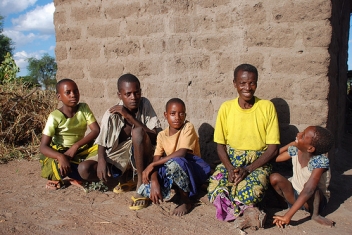The abuse of women’s rights in Africa is an issue which is very close to my heart. Abuse against older women is common across Africa and in African communities abroad, yet it receives very little attention. People give many reasons for it: culture, religion, politics, etc… all in the hope of legitimising this abuse, which is totally unacceptable.
Older women fight a “double battle”
Women throughout the African continent are often automatically discounted because of their gender and have to work twice as hard to be seen as equals. However, older women have to deal with a “double battle”; they face abuse and inequality because of their age and gender.
Their age can make them a scapegoat when something goes wrong in the community; when a relative dies, a child goes missing, someone becomes ill or even if they just have red eyes due to years of poor cooking conditions. The need to blame someone has led to many older women becoming victims of verbal and physical abuse and often leads to them being excluded from their families and communities.
In the last 10 years there has been a huge increase in the number of women’s NGOs working on self empowerment in this region, such as CARE International, Positive Women, Women for Women, Orchid Project and Akina Mama Wa Afrika. Despite this only a handful of them work with older women.
The 1981 African Charter on Human and People`s Rights even commits African governments to “ensure the elimination of every discrimination against women” and “the aged and the disabled shall also have the right to special measures of protection in keeping with their physical or moral needs“.
Whose responsibility is it to protect their rights?
So where is this “protection” of rights and whose responsibility is it to protect them? As African governments continue to receive billions in aid,  who is remembering older women and the crucial roles they have in society?
who is remembering older women and the crucial roles they have in society?
In this light, I was extremely excited about meeting with UN Women earlier this month in New York. The meeting was to discuss the lack of information about violence amongst older women. UN Women have a lot of data on women from the ages of 16 to 49.
However, they have nothing on older women facing violence. This meeting opened the door for a great discussion on what is missing and how important it is to inform people about the violence faced by older women.
Real examples from real older women
We spoke about real examples from real older women. Teresa, an older activist who is part of our Age Demands Action campaign, was at the meeting too. She told a story of how a woman had been accused of killing her husband and as a punishment was buried alive. She highlighted that such events happen on a regular basis but are not dealt with.
Violence against older women is still not recognised in many countries. With the help of our network of affiliates, HelpAge will begin to collect data on the abuse of older women. Once we have research on the types of abuse older women suffer, UN Women will help us develop our work, which will hopefully lead to discussions with governments and a push for change.
Having this information will also enable older women to be informed about these issues. Seeing that they are not alone in this will hopefully help them speak out about it.
An old African saying states that “what an old person will see while seating, a small child cannot see even standing on top of a mountain!” Let us value and appreciate older women.
You can read more about our work with UN Women
